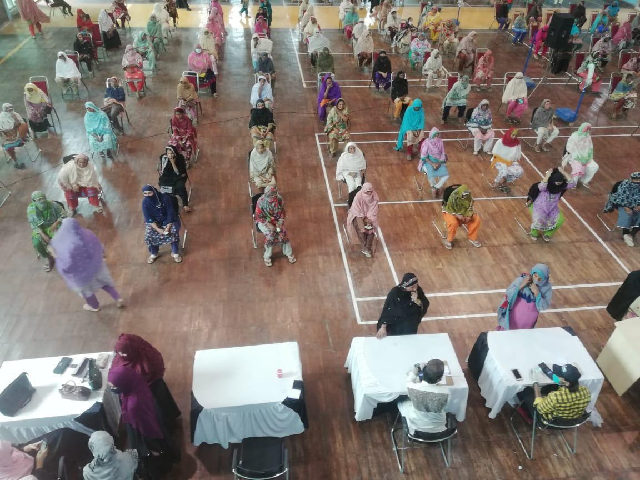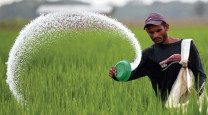SBP declines to share bank data
Poverty Alleviation Division sought data for cash relief programme

PHOTO: TWITTER/@ImranKhanPTI
SBP Governor Reza Baqir emphasised that the request of the Poverty Alleviation Division and NADRA could not be entertained. They had sought data relating to bank accounts with deposits of more than Rs50,000 for analysis.
"This is not legally tenable," a source quoted the SBP governor as saying in a meeting chaired by Prime Minister Imran Khan.
However, Baqir assured them of full support to ensure that required bank branches remained open to facilitate the disbursement of cash under the relief programme.
Sources said the Poverty Alleviation Division said it required data of bank account holders to analyse it for the Ehsaas Emergency Cash Relief Programme.
The programme depended on the final round of data from the SBP, Federal Board of Revenue (FBR), attached departments and autonomous bodies, the division said. It also depended on NADRA for utilising data analytics.
During the meeting, Special Assistant to Prime Minister on Social Protection and Poverty Alleviation Dr Sania Nishtar briefed the cabinet on the Ehsaas cash relief in response to the coronavirus.
She said the programme was aimed at providing one-off assistance to 12 million families by distributing Rs12,000 per family. The total budget for the programme is Rs144 billion.
According to lessons learnt from international programmes for large one-off cash injections, unconditional cash transfer programmes have a much lower cost per beneficiary than food distribution.
Giving the breakdown of 12 million beneficiaries of the relief assistance, she explained that 4.5 million would be existing beneficiaries of the Kafalat programme, four million would be added to the database as a result of relaxation in criteria, and three million would be included from lists being prepared by district administrations after utilising data analytics.
The cabinet was informed that as of April 7, 2020, a total of 26.59 million inquiries were received through SMS. Of these, 5.19 million beneficiaries were identified, 915,610 were ineligible and 706,562 had invalid CNIC numbers.
The prime minister appreciated efforts of the Poverty Alleviation Division and the Benazir Income Support Programme (BISP) for rolling out the largest social safety programme in the history of the country.
Its launch, in a short span of time, became possible due to a robust mechanism already in place for the Ehsaas programme.
Highlighting the importance of the emergency cash assistance for the deserving families, the prime minister stated that as a result of the restrictive measures to contain the spread of coronavirus, the underprivileged had been sliding into poverty and it was necessary for the government to support them.
He emphasised that the success of restrictive measures depended on the government's ability to reach out to those who relied on daily income to provide food for their families.
The meeting also discussed the fate of applicants who, despite being shortlisted as deserving, failed the biometric verification for one reason or the other. It was also suggested that disbursements should be staggered as far as possible to avert any law and order situation.
Published in The Express Tribune, May 2nd, 2020.
Like Business on Facebook, follow @TribuneBiz on Twitter to stay informed and join in the conversation.



















COMMENTS
Comments are moderated and generally will be posted if they are on-topic and not abusive.
For more information, please see our Comments FAQ